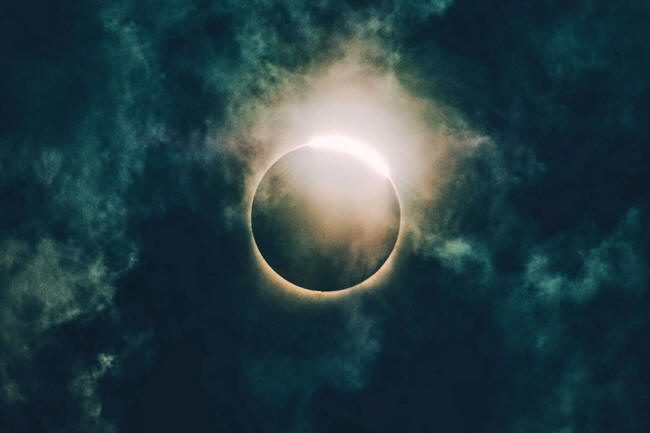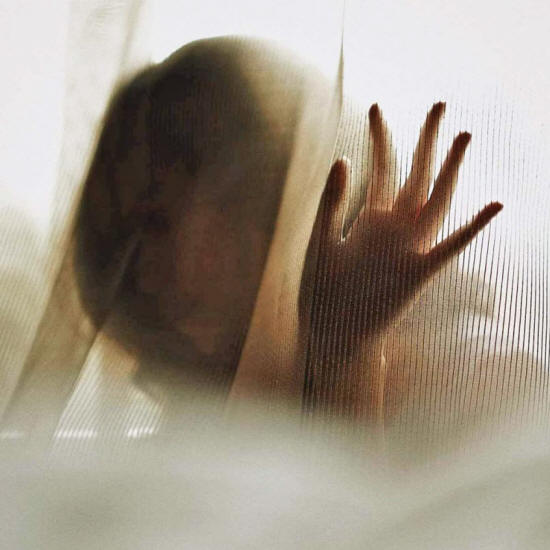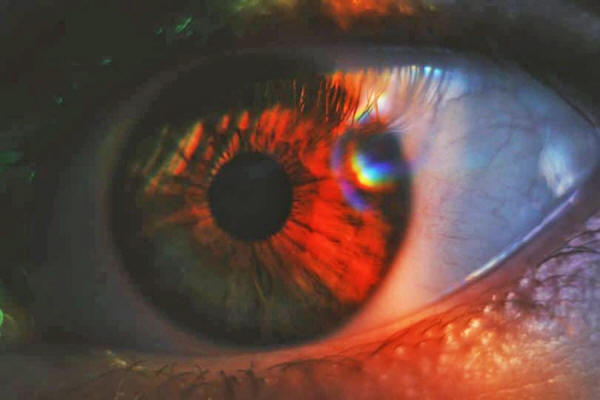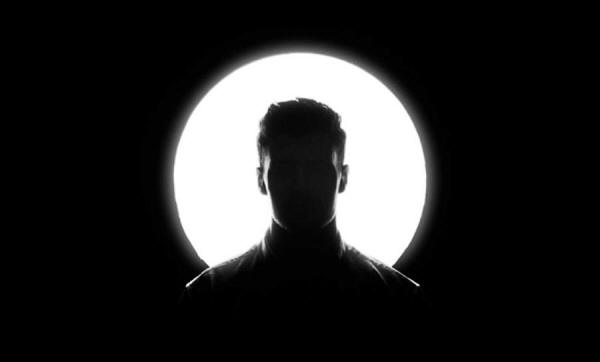|

by
Aletheia Luna
November 17,
2019
from
LonerWolf Website

You've gone through a tremendous spiritual awakening. Your life
perspective has changed drastically. You're no longer the same
person you once were a few years ago.
But something has gone horribly wrong.
While others on the spiritual path are reveling in their deep
insights, you feel suffocated under the weight of an existential
crisis.
While others are busy reconnecting with their meaning of life, you
can barely function in a job or even get out of bed to shower.
While others feel a deeper sense of peace and alignment, you feel
like you're on the verge of going crazy or being sucked into the
black hole of depression forever.
What on earth has
happened?
Is it something you did wrong?
Is it because you're
not worthy?
Is it because you're
not strong enough?
Answer:
NO, not at all...
What you are
experiencing has nothing to do with your strengths or
capabilities.
What you're experiencing is something called a
spiritual
emergency.
And as we'll see
throughout the rest of this article, it's a normal process that many
people experience during their spiritual paths, and it's not your
fault.
What is a
Spiritual Emergency?
The spiritual emergency is a severe crisis an individual may
experience after going through a spiritual awakening.
Essentially, a spiritual
emergency occurs when the spiritual awakening process speeds up so
much that it becomes terrifying and destabilizing to the body and
mind.
"Spiritual emergency" as a word was first coined Czech psychiatrists
Stanislav and Christina Grof and was expanded in the
1989 book 'Spiritual
Emergency - When Personal Transformation Becomes a Crisis.'
Since then it has
increased in popularity, although is still relatively unheard of
within mainstream spiritual communities. (I want to change that.)
Spiritual emergencies can happen to anyone at any point in
life. Those who are not particularly 'spiritual' can experience
it just as often as those who are actively engaged on the spiritual
path.
The common uniting
factor is usually that a person undergoes a shock (in the form
of illness, family death, major life change, etc.) that triggers
the spiritual crisis.
The spiritual emergency can last anywhere from a few days to a
number of years.
The process is very
much dependant on what kind of environment you live in and how
supportive vs. unsupportive it is.
15 Signs
You're Experiencing a Spiritual Emergency

Cosmic
love
is absolutely
ruthless
and highly
indifferent;
it teaches its
lessons
whether you
like/dislike them
or not...
John
Lilly
If you're going through a
spiritual emergency, you have my love and support.
This is probably one of
the most painful, disorienting, and scary experiences you will ever
go through - but please know that it does end, and it is worth going
through. (I'll explore why later.)
Below, you'll find fifteen signs commonly experienced during
spiritual emergencies:
-
You find it
impossible to cope with everyday tasks (like going shopping,
showering, cooking, keeping up with the bills, etc.)
-
You can't hold
down a job due to your intense sensitivity
-
It feels like
your whole world is crumbling around you
-
You struggle to
sleep properly and may experience night terrors
-
Your inner and
outer world blur confusingly
-
You experience a
rollercoaster of emotions
-
You may
experience strange hallucinations (e.g., images, sounds,
physical impressions)
-
Your grasp on the
real and logical is weak (resulting in psychotic-like
symptoms)
-
You may believe,
at some point, that you're the reincarnation of enlightened
figures like Jesus, Buddha, Mary, etc. (this is called
ego-inflation and is a result of Universal Consciousness
overlapping with your own personal consciousness)
-
You may
experience vivid past-life flashbacks
-
You feel strange
sensations in your body (e.g., vibrations, shivers, heat,
burning)
-
You've developed
a medically unexplainable illness
-
You experience
more
synchronicity or meaningful
coincidences
-
You feel like
you're being sucked into a different dimension or black hole
-
You feel like
you're going crazy
Of course, this list is
not exhaustive.
I'm sure there are many
other symptoms out there I've forgotten to include, so please share
below if you think I've missed any.
Why Do Spiritual Emergencies Happen?
Honestly, there is no single known reason why spiritual emergencies
happen. The cause, I suspect, is unique for everyone.
But here are some explanations:
-
It's your
destiny - by experiencing an accelerated spiritual
awakening process, you are about to learn some profound
lessons, work through a tremendous amount of karma, and
transform into the most illuminated version of yourself
possible in this lifetime.
-
Your
conditioning was particularly strong - conditioning
meaning the beliefs, ideas, habits, and patterns adopted
from your parents and society. To break through these forms
of conditioning and dissolve them (so you can experience a
conscious 'upgrade'), you had to undergo a particularly
intense spiritual awakening.
-
You're a
gifted shaman, priestess, healer, or "walker between worlds"
- part of your spiritual awakening process involves
connecting you with the forces of the unconscious mind or
"spirit realm" which you have not yet learned to navigate
(hence why you're experiencing a spiritual emergency).
-
You're dealing
with past karma - in some belief systems it's believed
that we deal with unresolved trauma from our past lives in
this lifetime - and that may take the shape of a spiritual
emergency to help you purge ancient patterns and develop a
'clean slate.'
-
You're more
sensitive - we all have various levels of sensitivity,
and those who undergo a spiritual emergency may be more
sensitive and empathic than others. This may explain why the
would-be spiritual awakening turns into a spiritual
emergency; it's simply too overwhelming for those already
sensitive to life. Again, there is no way of proving this,
but it is one theory that you might like to ruminate on.
So which theory are you
more inclined to believe?
Perhaps you'd like to
combine a few of these explanations and discard the rest. Regardless
of what you choose, it's vital here to stress that it's important to
give your spiritual emergency a purpose.
As Friedrich Nietzsche
wrote,
"He who has a why to
live for can bear almost any how."
Are You Experiencing a Spiritual Emergency or Mental Illness?

Breakdowns
precede
breakthroughs.
Lee
Lozowick
You might be curious to know whether the spiritual emergency is
actually just a fancy name for a psychotic break, manic-depressive
episode, or other severe mental illness?
This is a tough question to answer as there's no black or white
"yes" or "no"...
Those who undergo spiritual emergencies are often committed
to mental health wards - either forcibly or voluntarily.
As author Catherine G.
Lucas, founder of the UK
Spiritual Crisis Network
writes:
There are literally
thousands of people who have been through the mental health
system who have not had the spiritual aspect of their experience
honored.
The spiritual
dimension has been completely overshadowed by the interpretation
given to their experience by the medical model.
These unfortunate
individuals have been forcibly injected with high doses of
medication, held against their will, shunned by their families,
rejected by society, and labeled by the system as pathologically
mentally ill.
Although it can be argued that the mental health system (which is a
fundamentally flawed institution) is only doing what it knows best,
a psychiatric unit isn't the safest place for a person who is
undergoing a spiritual emergency.
Those who don't end up committed usually buy into the pathologizing
perspective of the mental health system - there simply aren't many
other alternatives.
They may be diagnosed
with a mental illness, instructed to take medication every day to
keep their symptoms under check, and shooed away like a herd animal
until their prescription expires - and the cycle continues.
While I'm not trying to imply that it's a good idea to get off your
medication if you suspect you've undergone a spiritual emergency, it
is good to be educated and have more options.
Sometimes a small amount
of medication is necessary to help prevent complete system shutdown
- and that is a blessing the medical world offers us.
But it's not the only
solution.
Being
'Diagnosed' or Hospitalized During the Spiritual Emergency…
Image of a lost woman and a curtain experiencing a spiritual
emergency
As Lucas writes in her book, the process of being tossed through the
medical system can be severely traumatizing and actually prevent us
from fulfilling the natural cycle of the spiritual emergency - and
reaping its rewards:
Overall, perhaps the
greatest danger of ending up in a hospital, and certainly the
saddest aspect, is that the opportunity for healing and growth,
for living a fuller, richer, more awakened life, can be
irretrievably lost.
The natural
process of renewal, as the psychiatrist John Weir Perry
called it, can be totally thwarted. Both the trauma of
hospitalization and the over-use of medication can have this
effect.
And once the process
has been stopped in its tracks it can be difficult, if not
impossible, to retrieve.
Furthermore, having our
mystical experiences dismissed as being purely 'psychotic,'
'borderline,' or 'schizophrenic' not only denies the spiritual
validity of what we're going through but also adds an unnecessary
element of fear and terror to the experience.
This fear and terror can
be profoundly crippling and can make the whole experience much more
difficult than it really needs to be.
Thankfully, there are some in the medical field (typically Jungian
and transpersonal therapists who focus on spiritual psychology) who
understand the spiritual significance of symptoms that would
otherwise be dismissed as "ramblings of a crazy mind."
I encourage you to seek
these sorts of professionals out and ask them if they are familiar
with the spiritual emergency. You can also visit the spiritual
emergence network if you need to find someone close to you.
Roger Walsh, an Australian professor of psychiatry,
philosophy, and anthropology, is one such figure in the medical
field who validates the spiritual emergency.
He calls it the
"developmental crisis":
Developmental crises
are periods of psychological stress that accompany turning
points in our lives.
They may be marked by
considerable psychological turmoil, sometimes even of
life-threatening proportions.
These transitions can
occur spontaneously, as in adolescent and midlife crises, or can
be induced by growth accelerating techniques such as
psychotherapy and meditation.
These crises occur
because psychological growth rarely proceeds smoothly.
Rather, growth is
usually marked by periods of confusion and questioning or, in
extreme cases, disorganization and despair.
So is it a
spiritual emergency or a psychosis?
We need to understand that sometimes experiences can be both/and not
either/or.
In this situation, you
may be experiencing both a spiritual emergency and some form of
psychosis - but they shouldn't be seen as two distinct things.
As Lucas writes,
"…I am not interested
in trying to distinguish between so-called psychosis and
spiritual emergency.
I take the view that
it is all the psyche's attempt to heal and move towards
wholeness, that each experience is potentially spiritually
transformative."
What you're going through
is valid and you need to seek out those who help you see your
spiritual emergency through a positive lens, not a negative one.
Types of
Spiritual Emergency

There are two main types of spiritual emergency.
They can be classified
as:
-
Mystical
Psychosis (hallucinations, mania, etc.)
-
The
Dark Night of the Soul
(depression)
Historically, we can see
Mystical Psychosis play out in figures such as,
St. Teresa of Avila,
Vincent Van Gogh, Nietzsche, and Carl Jung.
The Dark Night of the
Soul, on the other hand, can be seen in figures such as,
St. John of the
Cross, Eckhart Tolle, and Mother Teresa.
The main difference
between these two types of spiritual emergency seems to be the
direction in which energy flows.
With Mystical
Psychosis, the energy seems to flow upward and beyond into
higher realms of Spirit or Consciousness.
On the other hand, with the Dark Night of the Soul, the energy
seems to flow downwards and in - or into the realms of the
Collective Unconscious and Soul.
It is possible to have a
little bit of Mystical Psychosis paired with the Dark Night of the
Soul (and vice versa). It's even possible to have both equally.
But most people tend to
experience only one type of spiritual emergency.
How to Cope
With the Spiritual Emergency
There is
a crack,
a crack in
everything
that's how the
light gets in.
Leonard
Cohen
I write "cope" instead of "cure" because the spiritual emergency has
a mind of its own.
What we're dealing with
here is a force of nature, a Divine movement of energy that cannot
be tampered with without adverse effects (such as those stuck in the
mental health system carousel).
There is no six-steps-to-happiness process here. I wish there was. I
would so love to provide that for you. But that would be
disingenuous and disrespectful to the process you're going through.
Perhaps what is most
important to take away from this article is that,
your suffering has a
purpose and your experiences are spiritually valid.
If there's anything you
remember from this article, I hope it's this.
While there is no formula for healing, as every journey is
different, there are some practices you can try which have helped
those on a similar path before you.
Please take these forms of advice very slowly and stop at any time
if you feel worse:
1. Stop
meditation, practice mindfulness instead
Many people who undergo spiritual emergencies simply cannot
tolerate meditation.
Why?
Meditation can be
very dissociating if you're not grounded strongly in your body.
(And those undergoing Mystical Psychosis or the Dark Night
struggle to keep their grip on this plane of existence!)
Meditation can also
open up doorways within the mind and encourage the influx of
unconscious material.
For a person
already being bombarded with images and visions from the
deep mind, this can be profoundly destabilizing.
During this difficult
time, it's better to practice mindfulness.
Mindfulness means
consciously paying attention to the present moment. When we are
mindful, we are fully engaged with our body and senses.
Tuning into your
sense of taste, touch, smell, sight, and hearing can help to
bring you back down to earth and your body.
Try to practice mindfulness a little bit every day.
Wash the dishes
mindfully and feel the cold water against your hands.
Hang up the
clothes mindfully, and listen to the birds chirping outside.
Eat mindfully and
notice the different textures and flavors filling your
mouth.
You get the picture!
2. Seek out earth
energy
Try to bring the energy of the earth into your daily life.
As you may already
know, the earth's energy is deeply grounding and nourishing. If
you need help anchoring yourself into this realm, go outside and
dig in the soil. Get your arms elbow-deep in the dirt.
Plant some seedlings
in your backyard.
Take care of a pot
plant indoors. Sit underneath a tree and feel the ground
underneath your feet. If need be, bring a heavy stone to bed so
you can literally become grounded.
Ecotherapy is a good
avenue to explore.
3. Temporarily
stop your spiritual practice
To some, this may sound drastic, but the spiritual emergency
isn't something to be trifled with.
It's important to
understand that some types of spiritual practice can intensify
Mystical Psychosis and the Dark Night of the Soul. In the
interest of your sanity, it might be best to put your practice
aside for a while and focus on mundane tasks.
If you absolutely
cannot do without some form of spiritual nourishment, try
earth-centered approaches to spirituality, like spending time in
nature.
Ultimately, whether
you follow this advice or not is up to you and your situation.
But definitely
consider the possibility that your spiritual practice might be
detrimental to your wellbeing right now.
4. Eat hearty food
During the spiritual emergency, it's tempting to ignore what we
eat (simply because we're too preoccupied or have no energy).
But please, try your
utmost to eat at least one hearty meal a day. When I say hearty,
I mean the food needs to be grounded. Focus on root vegetables
like sweet potatoes and beetroots, and organic free-range meat.
If you're vegetarian
or vegan, you might consider temporarily changing your diet to
include meat - desperate times call for desperate measures!
5. Find the
purpose in your suffering
Examine again the five potential reasons why spiritual
emergencies happen (see the beginning of the article).
Why do you think
you're experiencing a spiritual emergency?
Listen to your heart
and let the answer emerge. You'll know you've found the truth
when you feel full-body shivers, a sense of peace and clarity,
or a sudden "aha!" light-bulb moment.
If you can't find any
satisfactory explanations mentioned in this article you may like
to pray to the Universe/God/whatever to help you find the
meaning. This prayer doesn't have to be religious, it can be
spiritual or secular.
Simply communicate
your intention, and notice any signs that arise in the next
week.
6. Exercise (even
just for a few minutes)
Depending on your situation, you may like a full-body catharsis
(like high interval training) or a gentle activity like walking.
Pay attention to your
needs. Exercise is vital for mental health and general physical
wellbeing. It also connects you with your body and the
surrounding world, which is important during the spiritual
emergency.
7. Avoid stressful
situations and reduce your responsibilities
Stress exacerbates any form of spiritual emergency - this is
pretty obvious.
Furthermore, holding
onto many responsibilities tends to produce stress. If you have
many projects or people needing your energy, it might be best to
drop the vast majority of them.
The spiritual
emergency demands your energy and attention, and getting lost in
workaholism is a recipe for disaster.
So try to simplify
what you can and give yourself some breathing space.
8. Seek support
Yes, in the midst of psychosis it might be necessary to be
medicated and hospitalized (low doses of medication are
generally better than high doses during spiritual emergencies -
but I am not a medical professional, so please listen to your
own common sense).
But generally, if
your experience doesn't require 24/7 observation, it's best to
seek out a therapist or spiritual counselor who is familiar with
the notion of spiritual emergencies.
Above I recommended transpersonal and Jungian therapists (but please
do your research and ask them if they know about spiritual
emergencies).
This is a great option,
and you can visit the Spiritual Emergence Network to see if
any are near you or just do a google search and include the name of
your city.
If worse comes to worst
and you can't find any within a reasonable distance, you can always
try a religious chaplain, community mental health center, or online
Skype sessions.
Why am I not recommending the support of friends or family members?
The reasons why is because usually those close to us have no
understanding of the spiritual emergency and tend to be negatively
conditioned by medical institutions.
In other words, it's much
more likely that they'll get spooked by your experience (as they're
comparing it to the "old" you) and actually invalidate the
experience rather than validate it. This is not a hard and fast
rule, and some friends or family members are mature and may have
gone through similar experiences.
So try to use your gut
instinct when making a decision, and above all, put your
wellbeing first.
Most importantly, do not let anyone try to convince you that what
you're going through is purely a product of mental illness or that
your visions/insights are "irrelevant."
Denying the spiritual
element of what you're going through is monumentally short-sighted
and detrimental to your wellbeing.
You have the right to
honor your experience and find meaning in it, as indeed it is
meaningful.
The Spiritual
Emergency is a Sacred Process
When all is said and done, this spiritual emergency may be
terrifyingly life-altering, but it is a sacred process of clearing
out the old and welcoming in the new.
While the medical world may pathologize you and the mundane
world may reject you,
You are not crazy.
You are not alone.
And your experiences
do have profound spiritual meaning...
| 




